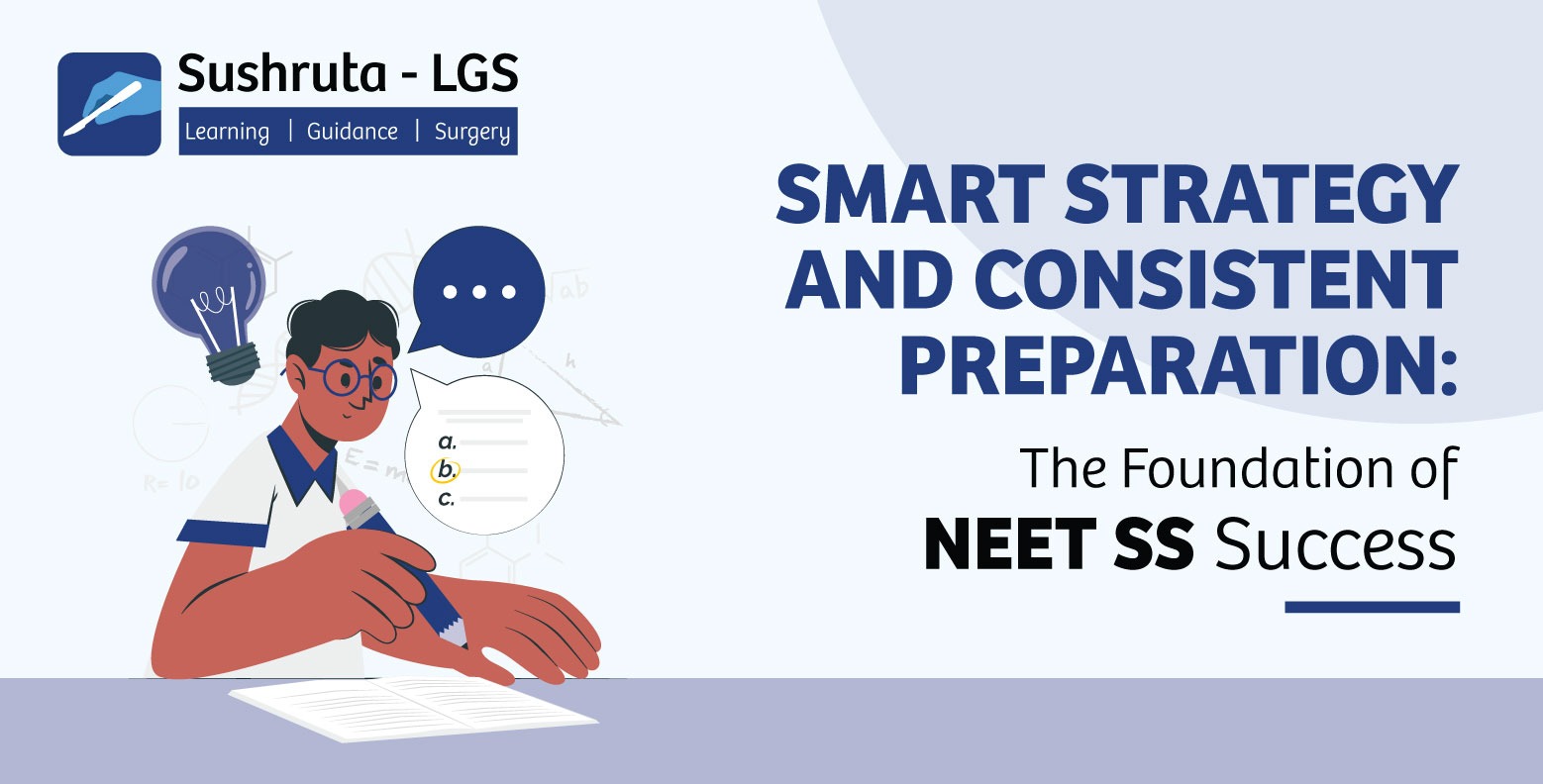NEET SS is traditionally a concept- and reasoning-oriented examination, especially for the Surgical Group. However, the trend of incorporating percentage-based information — directly or indirectly — into MCQ options has been witnessed, most notably in the NEET SS 2024 pattern.
While outright “percentage questions” are rare, what we now observe are subtle traps where the examiner embeds epidemiological or clinical incidence values into options asking “Which is True?” or “Which is False?” Knowing these facts — even approximately — can help you avoid errors and even eliminate options smartly.
Why Percentages Matter in NEET SS
In high-stakes exams like NEET SS, where every mark counts, misjudging the prevalence or incidence of a disease can cost you the question. These percentage-based facts often appear in the following ways:
- Prevalence or incidence of conditions (e.g., HNPCC in colorectal cancer, % of FAP patients with desmoid tumors)
- Success or recurrence rates (e.g., graft patency, recurrence after hernia repair)
- Risk factors or complication rates (e.g., bile duct injury during cholecystectomy)
Even if you don’t memorize exact values, relative ranges can be life-saving.
The 4-Tier Strategy to Memorize Percentages Effectively
To simplify your preparation, we recommend dividing commonly tested conditions into 4 logical percentage brackets:
|
Range
|
Label
|
|
< 20%
|
Rare
|
|
20–40%
|
Occasional
|
|
40–80%
|
Common
|
|
> 80%
|
Very Common / Typical
|
How This Helps:
Examiners might twist data deliberately. For example:
- Turning a true 15% incidence into a false option stating 50%
- Stating a rare complication as a “common” one
Knowing the ballpark range allows you to eliminate such highly implausible distractors confidently.
Sample List: Where Do Common Diseases Fall?
Here’s a short example to kickstart your list (ideal for custom flashcards or last-minute revision):
|
Disease / Finding
|
Approximate Incidence
|
Category
|
|
Desmoid tumors in FAP
|
~10–15%
|
Rare (<20%)
|
|
Bile duct injury in open cholecystectomy
|
~0.1–0.3%
|
Rare (<20%)
|
|
Anastomotic leak in colorectal surgery
|
~5–15%
|
Rare (<20%)
|
|
Recurrence after laparoscopic inguinal hernia repair
|
~1–5%
|
Rare
|
|
Anastomotic stricture in liver transplant
|
~10–30%
|
Occasional (20–40%)
|
|
Lymph node positivity in pancreatic cancer at surgery
|
~40–60%
|
Common (40–80%)
|
|
Graft patency after CABG at 1 year
|
~90–95%
|
Very Common (>80%)
|
|
Barrett’s esophagus in chronic GERD
|
~10–15%
|
Rare
|
|
Post-op pneumonia in thoracic surgery
|
~20–30%
|
Occasional
|
|
Ureteric injury during hysterectomy
|
~0.5–2%
|
Rare
|
Pro Tip: When revising, use color-coding or flashcards grouped by these ranges. Focus more on outliers and extreme values — they are often twisted in the exam.
How to Use This Strategy in Real Exams
When faced with a question like:
“Which of the following statements about FAP is TRUE?”
A. Desmoid tumors occur in >80% of patients
B. Prophylactic colectomy prevents all extracolonic manifestations
C. Lifetime colorectal cancer risk is 100%
D. Duodenal cancer occurs in <5% of patients
Using the percentage-based memory strategy:
- You know desmoid tumors occur in ~10–15% ⇒ Option A is false
- Duodenal cancer risk is ~4–12% ⇒ Option D is plausible
- Lifetime CRC risk is ~100% ⇒ Option C is true
Correct answer: C
Final Takeaway for NEET SS 2025 Aspirants
- Even though NEET SS doesn’t focus on statistics, well-disguised factual MCQs are now the norm.
- Group your revision of percentages into <20%, 20–40%, 40–80%, >80% to make recall easier.
- Create your own disease-wise percentage flashcards or tables.
- Revise and cross-check with standard textbooks (Bailey, Sabiston, Schwartz) and recent recall questions.
- Don’t memorize all exact values — just absorb the trend.
Bookmark this strategy and share with fellow NEET SS 2025 aspirants!
Want more high-yield insights like this? Head over to our app now.








